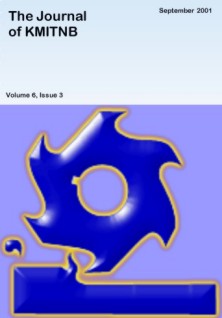ThaiScience
ThaiScience
THE JOURNAL OF KMUTNB
Volume 32, No. 02, Month APRIL, Year 2022, Pages 434 - 444
Efficiency comparison of missing value estimation methods of response variable for three factor factorial experiment in randomized complete block design
Thanrada Chaikajonwat, Juthaphorn Sinsomboonthong, Thidaporn Supapakorn
Abstract Download PDF
The objective of this research is to compare the efficiency of four missing value estimation methods; i.e. Expectation Maximization, Multiple Imputation 1, Multiple Imputation 2, and K-Nearest Neighbor Imputation. The response variables of three factor factorial experiment were tested in randomized complete block design. The difference between Multiple Imputation 1 and Multiple Imputation 2 is the distance calculation methods of observations. A simulation study is conducted by Monte Carlo technique for 108 situations and 2,000 replications for each situation. The studied points are as follows : the numbers of each factor are 3, 4 and 5, the number of block is 3 with the percentages of missing values at 5 and 10, and the studied variances of observation are 25 and 625. In addition, the efficiency comparison criterion is the estimated mean squared error. The result shows that K-Nearest Neighbor Imputation has the lowest estimated mean squared error for all situations. Therefore, K-Nearest Neighbor Imputation is the most efficient estimator for all situations.
Keywords
Three Factor Factorial Experiment in Randomized Complete Block Design, Missing Value, Expectation Maximization, Multiple Imputation, K-Nearest Neighbor ImputationTHE JOURNAL OF KMUTNB
Published by : King Mongkut's University of Technology North Bangkok
Contributions welcome at : http://www.journal.kmutnb.ac.th
